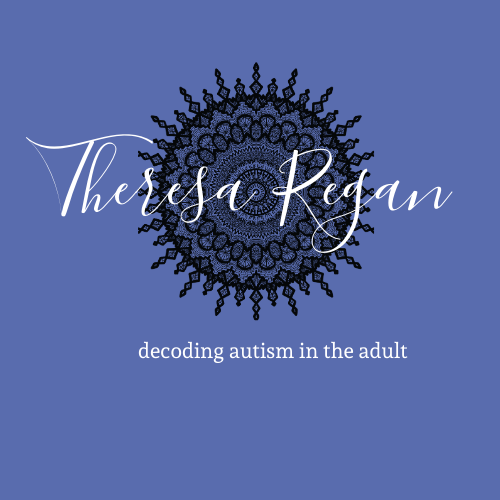Talking About Autism: Personal Journeys
Description
Join Dr. Regan for this first episode of the new series "Talking About Autism." This episode focuses on talking about autism when you are on a journey toward diagnosis and after you have received a diagnosis.
New Course for Clinicians - Interventions in Autism: Helping Clients Stay Centered, Connect with Others, and Engage in Life
New Course for Clinicians: ASD Differential Diagnoses and Associated Characteristics
Dr. Regan's Resources
Book: Understanding Autism in Adults and Aging Adults, 2nd ed
Audiobook
Book: Understanding Autistic Behaviors
Autism in the Adult website
Resources for Clinicians
Read the transcript:
1
00:00:03,540 --> 00:00:07,840
Hello and welcome to this episode of Autism in the Adult.
2
00:00:07,880 --> 00:00:09,020
I am your host,
3
00:00:09,020 --> 00:00:10,510
Dr Theresa Regan.
4
00:00:10,520 --> 00:00:12,600
I'm a neuropsychologist.
5
00:00:12,620 --> 00:00:15,060
I am a certified autism specialist,
6
00:00:15,440 --> 00:00:23,750
the director of an autism diagnostic clinic for adults in central Illinois, and the mother of a teen and the spectrum.
7
00:00:24,550 --> 00:00:27,630
I am starting a new series of episodes today.
8
00:00:28,040 --> 00:00:33,040
I think this may end up being a 3-4 part series.
9
00:00:33,040 --> 00:00:34,330
We'll see how it goes.
10
00:00:34,340 --> 00:00:40,060
Um and basically the series is going to be called "Talking About Autism."
11
00:00:40,440 --> 00:00:50,490
And this was a listener request... from multiple listeners that have emailed about "How do I talk about this to other people,
12
00:00:50,490 --> 00:00:52,570
whether that's my own diagnosis,
13
00:00:52,570 --> 00:00:56,720
whether that's talking to people that I think may be on the spectrum,
14
00:00:56,720 --> 00:01:07,320
but they haven't been thinking in that direction... and how do I navigate all the emotion that sometimes comes with these kinds of discussions?"
15
00:01:07,320 --> 00:01:12,460
So we're going to take some time to sort through some of those topics.
16
00:01:13,340 --> 00:01:22,680
I believe that this topic is really important, and that's why I have set aside to do a series of episodes about the topic.
17
00:01:22,690 --> 00:01:31,780
I also feel like this is probably one of the most challenging episodes that I've put my mind to here.
18
00:01:31,790 --> 00:01:59,210
And that is because in some ways it's a lot easier to present some research and a list of facts and definitions of terms than to talk about these concepts and experiences and to wrap words around things that are perhaps more personal or experiential is a little more challenging, but worth it I think...
19
00:01:59,210 --> 00:02:00,260
but challenging.
20
00:02:00,270 --> 00:02:05,960
And one of the challenges is probably to make some organization of it.
22
00:02:06,750 --> 00:02:11,650
... So there's some cohesion in what we're talking about in each episode.
23
00:02:12,140 --> 00:02:13,810
So in this first episode,
24
00:02:13,810 --> 00:02:22,700
I'm going to cover the topic of talking about your own autism diagnosis to other people,
25
00:02:22,700 --> 00:02:25,060
and I'm going to cover two things.
26
00:02:25,060 --> 00:02:37,560
One is if you're an individual who's thinking about starting a journey toward evaluation, and you're talking to people about your desire to do this,
27
00:02:37,940 --> 00:02:38,340
um,
28
00:02:38,340 --> 00:02:45,270
some of what we review will have to do with this kind of process ... this starting of that journey.
29
00:02:45,280 --> 00:02:46,590
And also,
30
00:02:46,590 --> 00:02:50,800
then we'll finish by talking about once you have a diagnosis,
31
00:02:50,810 --> 00:02:51,930
um,
32
00:02:51,940 --> 00:02:54,270
who do you talk to about it?
33
00:02:54,280 --> 00:02:55,960
How do you bring it up?
34
00:02:56,340 --> 00:02:56,890
Um,
35
00:02:56,900 --> 00:03:00,750
how does that go after you have a diagnosis?
36
00:03:01,140 -->
More Episodes
Join Dr. Regan for the fifth episode of the Lifespan of a Household series. Today's episode focuses on topics important to autistic individuals who are parenting young children.
Autism in the Adult website
Resources for professionals
Video Visits
Video Courses
Published 10/19/24
Join Dr. Regan for the 4th episode in the Lifespan of a Household series. Today's episode focuses on topics important to the autistic individual who is preparing for parenting.
Autism in the Adult website
Resources for professionals
Video Visits
Video Courses
Published 10/06/24
Published 10/06/24


